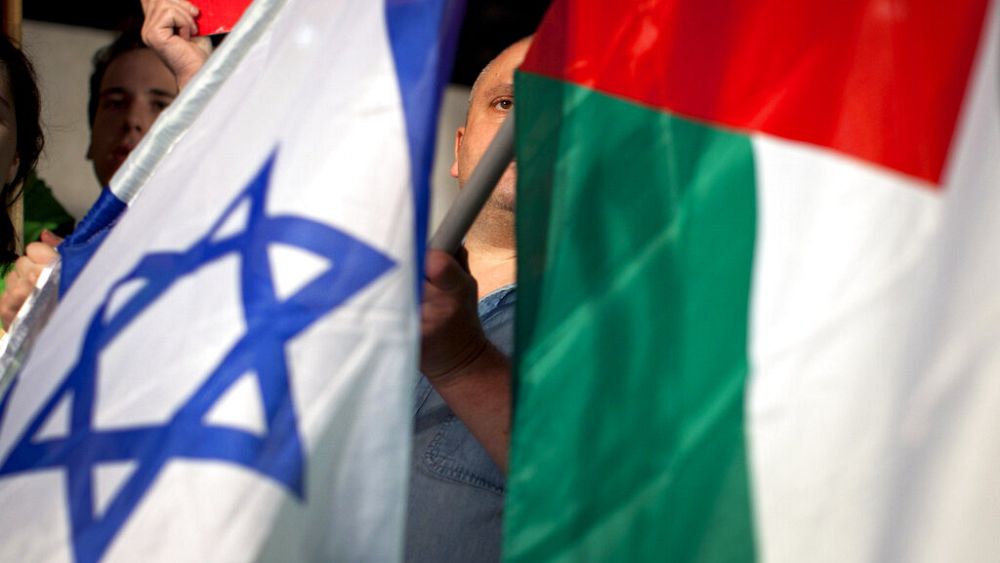Fewer prople in both Israel and Palestine believed the two-state solution and think the two states cannot co-exist peacefully – even before last weekend’s terror attacks.
Public sentiment among members of the public in both Israel and Palestinian-controlled areas was moving away from the idea of creating a two-state solution for the region, even before Hamas launched terror attacks last weekend.
Public surveys carried out in Israel, Gaza, and the West Bank have revealed that only one in three people now see the feasibility of a political resolution to the issue.
People were asked if a way could be found for resolution by forming an independent Palestinian state and whether it could co-exist peacefully with Israel.
According to the Pew Research Center’s survey, a growing number of Israelis are beginning to doubt the feasibility of a two-state solution, with only 35% of respondents believing that a peaceful coexistence between Israel and Palestine can be achieved.
This marks a 15 percentage point decrease from a decade ago, and the lowest figures to date.
Notably, the sentiment against a two-state solution has significantly shifted among the Arab Israelis compared to the Jewish Israelis.
Arab Israelis are now 33% less likely to believe in this approach compared to 2013. Their Jewish counterparts are 14% less likely to see this possibility in the same time period.
The survey was, however, conducted in April and published in September, before the Israel-Hamas war erupted following an unprecedented attack on October 7.
Palestinians do not think a two-state solution is feasible
Data available on the Palestinian side is more nuanced.
Nearly one-third of the Palestinians now express support for the two-state solution, according to a survey conducted by the Palestinian Center for Policy and Survey Research in September.
While there has been a slight increase in support for a two-state solution, a majority of Palestinians still believe it is not the way forward.
Some 67% of Palestinians oppose the two-state solution, citing settlement expansion as a key reason for their scepticism.
Plus a growing dissent against the lack of implementation of the Oslo Accords – a pair of agreements signed in 1993 to ensure the “right of the Palestinian people to self-determination” – and Israel’s use of coercion in the occupied territories has only made matters worse.
The Israeli army is preventing a peaceful resolution and the creation of a Palestinian state, Hassan Albalawi, deputy head of the Palestine mission to the European Union, told Euronews on Tuesday.
He blamed the systemic persecution of Palestinians by the Israeli authorities as the major cause of unfolding violence, citing a lack of international intervention in holding Israel accountable.
“When Israel attacks, when Israel occupies, when Israel colonises, when Israel encircles Gaza […] with all of this, you (Europe) will say that Israel is defending itself?” he added.
That is reflected in the latest survey, showing Palestinians’ dwindling belief in negotiations as a means to form a sovereign state.
Among Palestinian civilians, 53% favour an armed struggle to establish an independent state and fight the occupation. That is a 12% rise compared to survey results from the same time in 2022.
The spike is compensated by a decrease in confidence in diplomacy and negotiations, as Palestinians now are 10% less likely to prefer it as a solution according to the same survey.




















Discussion about this post